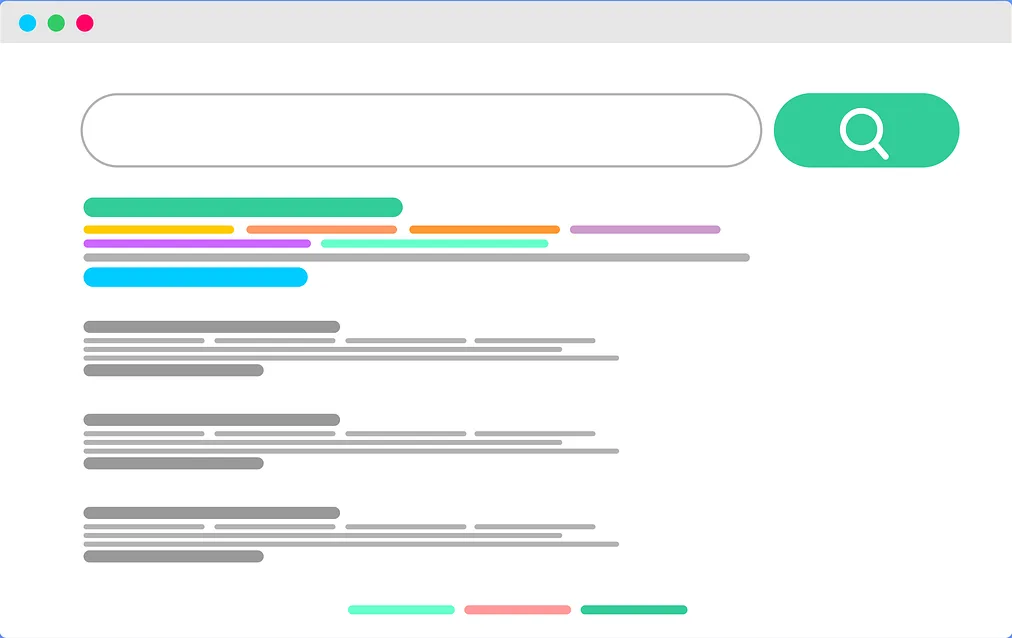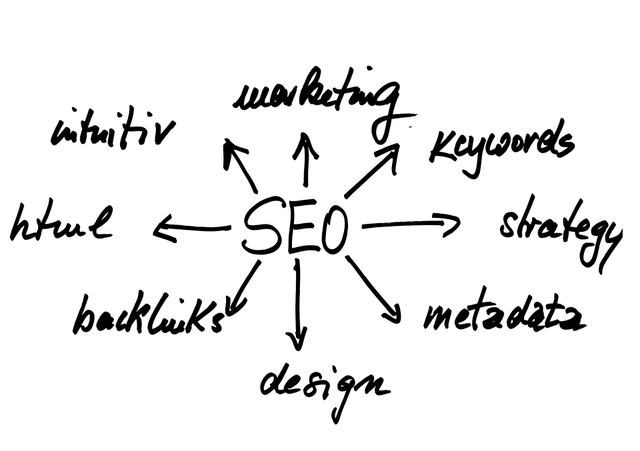Search Engine Optimization (SEO)
Search Engine Optimization (SEO) refers to the process of optimizing your website and content to increase its visibility in search engine results. This involves improving various aspects of your site so search engines like Google can better understand its relevance and rank it higher when users search for related keywords.

In short, SEO is all about driving organic traffic to your site without relying on paid ads.
How Search Engines Work
Understanding the basics of how search engines work is the foundation of any successful SEO strategy. Search engines perform three essential tasks:
- Crawling: Search engines use bots (or spiders) to scan the web for content. These bots systematically browse through websites, collecting data and URLs.
- Indexing: Once the search engine crawls a webpage, it stores and organizes the content in its vast index. This index serves as a library of all the content the search engine has found.
- Ranking: When users search for something, search engines sift through the indexed content and present the most relevant pages in the order of importance, known as the ranking.
Key SEO Elements
There are several important elements that contribute to good SEO. Each of these factors helps search engines understand what your site is about and how relevant it is to users’ search queries. The main components include:

Keywords
Keywords are the phrases or terms that users type into search engines. Identifying the right keywords is one of the first steps in developing an SEO strategy. Tools like Google Keyword Planner or SEMrush can help you find keywords that are highly relevant to your audience and not too competitive.
- Use relevant keywords naturally in your content, titles, and meta descriptions.
- Avoid keyword stuffing, as search engines penalize sites for overusing keywords.
- Incorporate long-tail keywords (specific phrases) to target niche audiences.
On-Page SEO
On-page SEO refers to the elements on your website that you can optimize for search engines. This includes:
- Title Tags: The HTML tags used to define the title of a page, which appears in search results.
- Meta Descriptions: Short snippets of text that summarize the content of a page and encourage users to click through.
- Header Tags: These tags (H1, H2, etc.) structure your content, making it easier for both users and search engines to read.
- Image Alt Text: Descriptions added to images to make them more accessible and provide additional context to search engines.
- Internal Linking: Creating links within your website to other related content, improving site navigation and helping search engines understand the structure of your site.
Off-Page SEO
Off-page SEO refers to the activities that occur outside of your website but still impact your rankings. These include:
- Backlinks: Links from other websites to your own. Search engines view backlinks as votes of confidence for your content.
- Social Media Signals: Engagement on social media platforms (likes, shares, comments) can indirectly boost your rankings by increasing traffic to your site.
- Guest Blogging: Writing articles for other websites to build authority and earn backlinks.
Technical SEO
Technical SEO ensures that your website is designed in a way that search engines can crawl and index it effectively. Some key aspects of technical SEO are:
- Site Speed: A faster website offers a better user experience and can improve rankings.
- Mobile-Friendliness: Your site must be optimized for mobile devices, as a significant portion of traffic comes from mobile users.
- XML Sitemaps: These files help search engines understand your website structure and index all its pages.
- Structured Data: Also known as schema markup, this helps search engines interpret the content of your pages more effectively.
The Importance of Content in SEO
Content is often referred to as “king” in SEO. High-quality, relevant content is crucial for ranking well on search engines. The more valuable and unique your content is, the more likely users will engage with it and share it, which can positively impact your rankings. To optimize your content for SEO:
- Create long-form, informative content that thoroughly addresses the needs of your audience.
- Use multimedia elements like images and videos to enrich the user experience.
- Update your content regularly to ensure it stays fresh and relevant.
Measuring SEO Success
Once you’ve implemented SEO strategies, it’s important to measure their success. There are several key metrics that can help you evaluate your SEO performance:
- Organic Traffic: The number of visitors that land on your website through unpaid search results.
- Keyword Rankings: Track how well your website ranks for the keywords you’ve targeted.
- Backlinks: Monitor the number and quality of backlinks your website is receiving.
- Click-Through Rate (CTR): The percentage of people who click on your website link when it appears in search results.
- Conversion Rate: How many visitors are taking desired actions on your website, such as making a purchase or signing up for a newsletter.
Conclusion
Search Engine Optimization is a powerful tool for growing your website’s visibility and attracting organic traffic. By understanding how search engines work and optimizing both on-page and off-page elements, you can improve your rankings and drive more visitors to your site. SEO is an ongoing process, and by consistently monitoring and adjusting your strategy, you’ll be able to stay ahead of the competition and maintain a strong online presence.
